Researchers at the University of Copenhagen can radically alter the properties of proteins by redesigning their chemical structure. New fundamental research based on designer proteins highlights important communication processes in the human body. In the long term, this new knowledge may lead to pharmaceuticals with fewer side effects.
Jan 29th, 2014
Read more
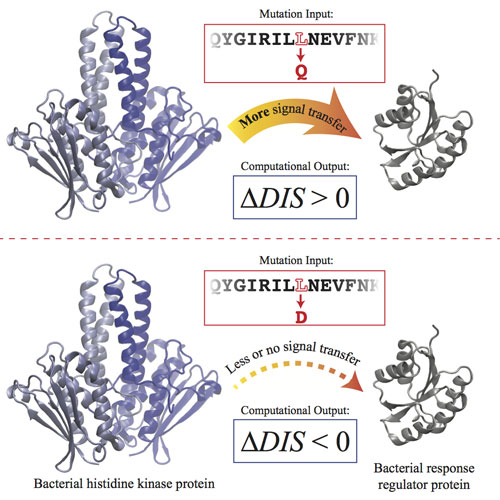 Scientists have created a way to interpret interactions among pairs of task-oriented proteins that relay signals. The goal is to learn how the proteins avoid crosstalk and whether they can be tuned for better performance.
Scientists have created a way to interpret interactions among pairs of task-oriented proteins that relay signals. The goal is to learn how the proteins avoid crosstalk and whether they can be tuned for better performance.
Jan 27th, 2014
Read more
Researchers from the Institute of Integrated Cell-Material Sciences (iCeMS) at Kyoto University have designed a set of DNA-based molecules capable of controlling biological networks in cells.
Jan 27th, 2014
Read more
Researchers developed a simple method to validate protein drugs in animal models.
Jan 24th, 2014
Read more
Investigators at Johns Hopkins report they have developed human induced-pluripotent stem cells (iPSCs) capable of repairing damaged retinal vascular tissue in mice. The stem cells, derived from human umbilical cord-blood and coaxed into an embryonic-like state, were grown without the conventional use of viruses, which can mutate genes and initiate cancers, according to the scientists.
Jan 24th, 2014
Read more
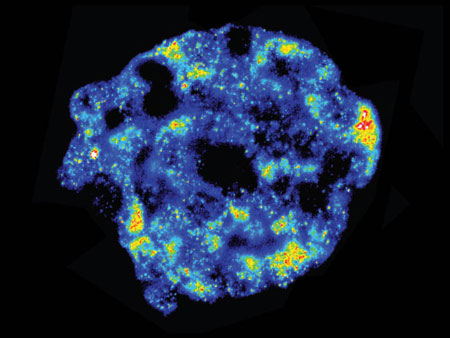 Stem cells can turn into heart cells, skin cells can mutate to cancer cells; even cells of the same tissue type exhibit small heterogeneities. Scientists use single-cell analyses to investigate these heterogeneities. But the method is still laborious and considerable inaccuracies conceal smaller effects. Scientists have now found a way to simplify and improve the analysis by mathematical methods.
Stem cells can turn into heart cells, skin cells can mutate to cancer cells; even cells of the same tissue type exhibit small heterogeneities. Scientists use single-cell analyses to investigate these heterogeneities. But the method is still laborious and considerable inaccuracies conceal smaller effects. Scientists have now found a way to simplify and improve the analysis by mathematical methods.
Jan 23rd, 2014
Read more
A palm-top device developed by UCSB researchers provides real-time insight into how fast a living body metabolizes drugs, opening the door to highly personalized medicine.
Jan 22nd, 2014
Read more
Using next-generation sequencing, researchers provide a detailed characterization of the genetic variation present within the baker's yeast species.
Jan 22nd, 2014
Read more
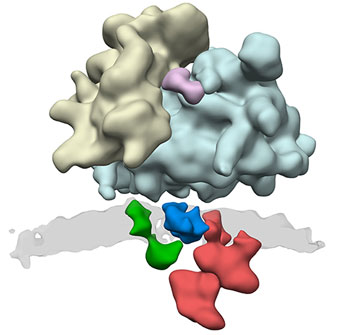 Proteins are the molecular building blocks and machines of the cell and are involved in virtually every process of life. After protein production, many proteins are equipped with attachments such as sugar residues in order to perform their tasks properly. This process is directly coupled to the transport across a membrane. Employing various methods of structural biology, scientists have now gained insights into the architecture of the protein complex responsible for this process.
Proteins are the molecular building blocks and machines of the cell and are involved in virtually every process of life. After protein production, many proteins are equipped with attachments such as sugar residues in order to perform their tasks properly. This process is directly coupled to the transport across a membrane. Employing various methods of structural biology, scientists have now gained insights into the architecture of the protein complex responsible for this process.
Jan 15th, 2014
Read more
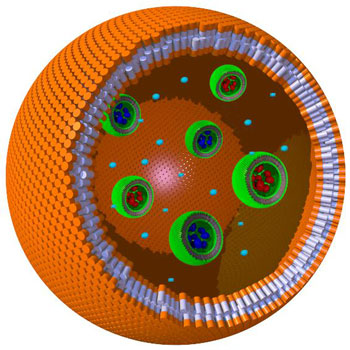 For the first time, chemists have successfully produced an artificial cell containing organelles capable of carrying out the various steps of a chemical reaction.
For the first time, chemists have successfully produced an artificial cell containing organelles capable of carrying out the various steps of a chemical reaction.
Jan 14th, 2014
Read more
The Proteostasis initiative, supported by the European Union (EU), is led by the Basque centre for research in biosciences, CIC bioGUNE, in collaboration with the Inbiomed foundation, and includes groups that carry out research on the degradation and modification of cellular proteins.
Jan 13th, 2014
Read more
Scientists at EMBL-EBI have developed EC-BLAST: software that makes it easier to develop novel enzymes.
Jan 13th, 2014
Read more
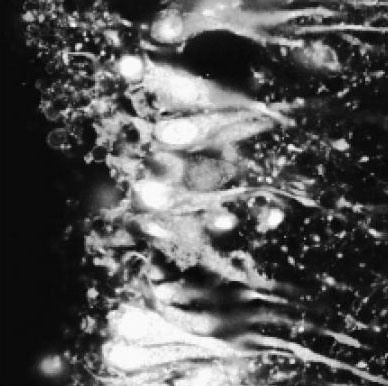 Findings allow for better understanding of how tissue microenvironment affects gene expression in healthy and diseased cells.
Findings allow for better understanding of how tissue microenvironment affects gene expression in healthy and diseased cells.
Jan 12th, 2014
Read more
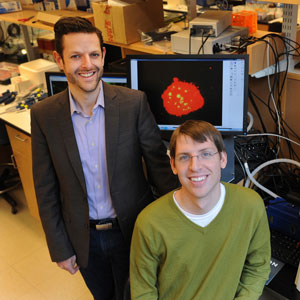 Harvard stem cells scientists at Brigham and Women's Hospital and MIT can now engineer cells that are more easily controlled following transplantation, potentially making cell therapies, hundreds of which are currently in clinical trials across the United States, more functional and efficient.
Harvard stem cells scientists at Brigham and Women's Hospital and MIT can now engineer cells that are more easily controlled following transplantation, potentially making cell therapies, hundreds of which are currently in clinical trials across the United States, more functional and efficient.
Jan 10th, 2014
Read more
When autologous, skin-derived stem cells were transplanted within collagen nerve guide tubes aimed at bridging gaps in damaged nerves, into the upper arms of a patient who was suffering peripheral nerve damage, the procedure successfully led to the rescue of peripheral nerves. The procedure spared the patient with poly-injury to motor and sensory nerve damage from amputation of the upper arms and resulted in 'suitable functional recovery'. Three year follow up revealed nerve regeneration.
Jan 10th, 2014
Read more
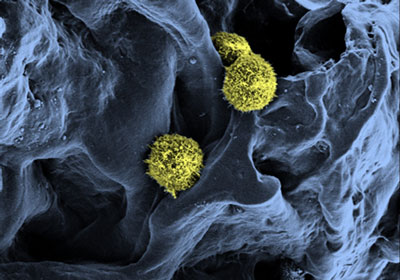 Artificial bone marrow may be used to reproduce hematopoietic stem cells. A prototype has now been developed. The porous structure possesses essential properties of natural bone marrow and can be used for the reproduction of stem cells at the laboratory.
Artificial bone marrow may be used to reproduce hematopoietic stem cells. A prototype has now been developed. The porous structure possesses essential properties of natural bone marrow and can be used for the reproduction of stem cells at the laboratory.
Jan 10th, 2014
Read more
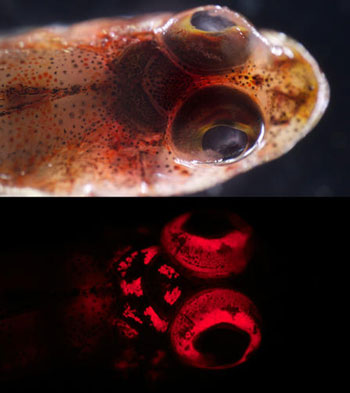 A team of researchers led by scientists from the American Museum of Natural History has released the first report of widespread biofluorescence in the tree of life of fishes, identifying more than 180 species that glow in a wide range of colors and patterns.
A team of researchers led by scientists from the American Museum of Natural History has released the first report of widespread biofluorescence in the tree of life of fishes, identifying more than 180 species that glow in a wide range of colors and patterns.
Jan 9th, 2014
Read more
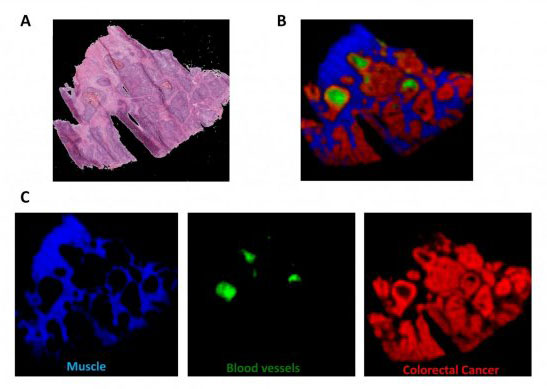 A new method for analysing biological samples based on their chemical makeup is set to transform the way medical scientists examine diseased tissue.
A new method for analysing biological samples based on their chemical makeup is set to transform the way medical scientists examine diseased tissue.
Jan 8th, 2014
Read more

 Subscribe to our Biotechnology News feed
Subscribe to our Biotechnology News feed







